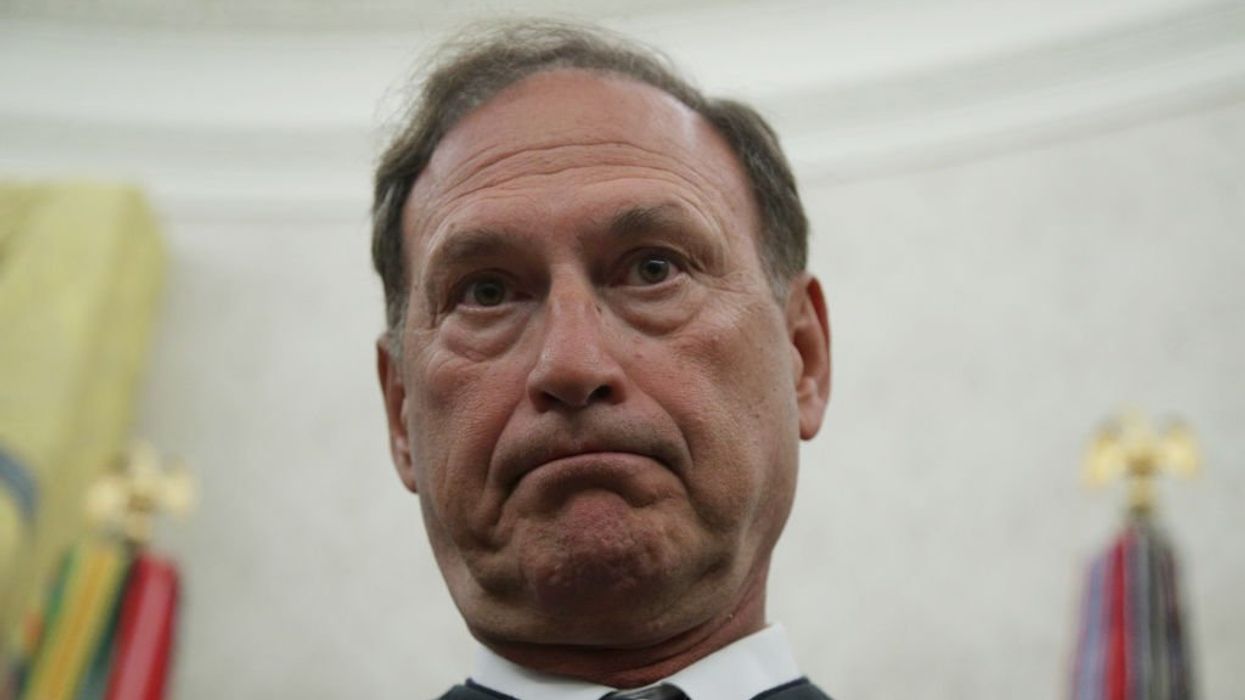
Alex Wong/Getty Images

The Supreme Court last year warned against the indirect use of race in admissions. A recent Fourth Circuit ruling contradicts the high court’s decision.
The Supreme Court is not supreme over other branches of government, but it most certainly is superior to the inferior federal courts. We’ve been observing a pattern of the three Trump appointees refusing to join Justices Clarence Thomas and Samuel Alito in enforcing what is clearly the majority opinion against bad lower court rulings.
Shockingly, we are now seeing this happen with race-based admissions despite the court’s categorical landmark ruling in the Harvard and University of North Carolina cases.
Lower courts continue to play a legal game of “catch me if you can” by trying to defy the jurisprudence of the high court.
The Supreme Court last year ruled 6-2 that race-based preferences violate the 14th Amendment’s Equal Protection clause. As Chief Justice John Roberts wrote for the majority in the Harvard admissions case, “an individual’s race may never be used against him in the admissions process.” And he noted that any preference for one race necessarily harms others.
“College admissions are zero-sum,” Roberts wrote. “A benefit provided to some applicants but not to others necessarily advantages the former group at the expense of the latter.”
The court ruling was as unambiguous as we ever get from this panel of justices. We thought all discrimination in admissions, especially in public schools, would be relegated to the ash heap of history. Yet the Fourth Circuit Court of Appeals allowed Thomas Jefferson High School for Science and Technology, a highly regarded public magnet school in Virginia, to discriminate based on “socioeconomic” factors. The policy, adopted by the Fairfax County School Board, was transparently designed with the same outcome in mind as the Harvard case — namely, to reduce the numbers of Asian students and increase the numbers of black and Hispanic students.
The school succeeded. In the first year after the new admission policy was put in place, the number of Asian students dropped by 19% and the number of black and Hispanic students quadrupled. This is why the district court sided with the students and found direct evidence that the admission process was racially motivated. If the Fourth Circuit’s reversal stands, however, it would provide a clear workaround for the Harvard decision, thereby neutralizing the entire prohibition on race-based considerations.
Sadly, the Supreme Court turned down the Asian parents appealing the Fourth Circuit’s decision. Only Alito and Thomas publicly lodged their dissent. This is shocking given that Roberts himself warned schools last year against indirectly achieving affirmative action goals “through application essays or other means.” He also cautioned that “what cannot be done directly” — the consideration of an applicant’s race — “cannot be done indirectly.”
In a sharply written dissent, Alito chastised his colleagues’ “willingness to swallow the aberrant decision below” as “hard to understand.” He therefore warned that this stratagem from the Fourth Circuit is “a virus that may spread if not promptly eliminated,” and consequently, “We should wipe the decision off the books.”
Alito went a step farther and shamed his politically correct colleagues with a hypothetical scenario in which the races would be reversed.
Suppose that white parents in a school district where 85 percent of the students are white and 15 percent are black complain because 10 of the 12 players (83 percent) on the public high school basketball team are black. Suppose that the principal emails the coach and says: “You have too many black players. You need to replace some of them with white players.” And suppose the coach emails back: “Ok. That will hurt the team, but if you insist, I’ll do it.” The coach then takes five of his black players aside and kicks them off the team for some contrived — but facially neutral — reason.
Alito correctly observes, “I cannot imagine this Court’s sustaining such discrimination,” but that is what would be compelled by the Fourth Circuit’s logic.
“According to the reasoning of the Fourth Circuit majority,” Alito writes, “this action would not violate equal protection because the percentage of black players left on the team (approximately 42 percent) would exceed the percentage of black students in the school.”
Although it’s hard to know which of the remaining Republican appointees who did not sign on to the dissent would have agreed to take the case, clearly no more than one out of Roberts, Gorsuch, Kavanaugh, and Barrett wanted to take the case.
GOP-appointed justices hesitate to oversee lower courts, highlighting a contrast in legal victories between right and left. After the high court redefined marriage for all of humanity, no red state tried to slow-walk implementation of the ruling. The red states collapsed into “the law of the land” mantra immediately.
Contrast that with cases that we win on guns, religious liberty, or affirmative action, and lower courts continue to play a legal game of “catch me if you can” by trying to defy the jurisprudence of the high court in a slightly different case.
Democratic judges police their rulings with vigor, while Republican judges don’t want too many policy changes to flow to conservatives as a windfall of their decisions. As such, they let negative rulings they know are unconstitutional fester unchallenged at the lower court level for years. Which is why the left has a perpetual first-and-goal at our one-yard line. We must win every time while they need only one pass into the judicial end zone.
Daniel Horowitz
Blaze Podcast Host